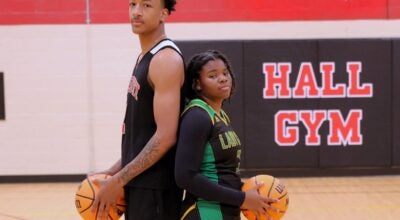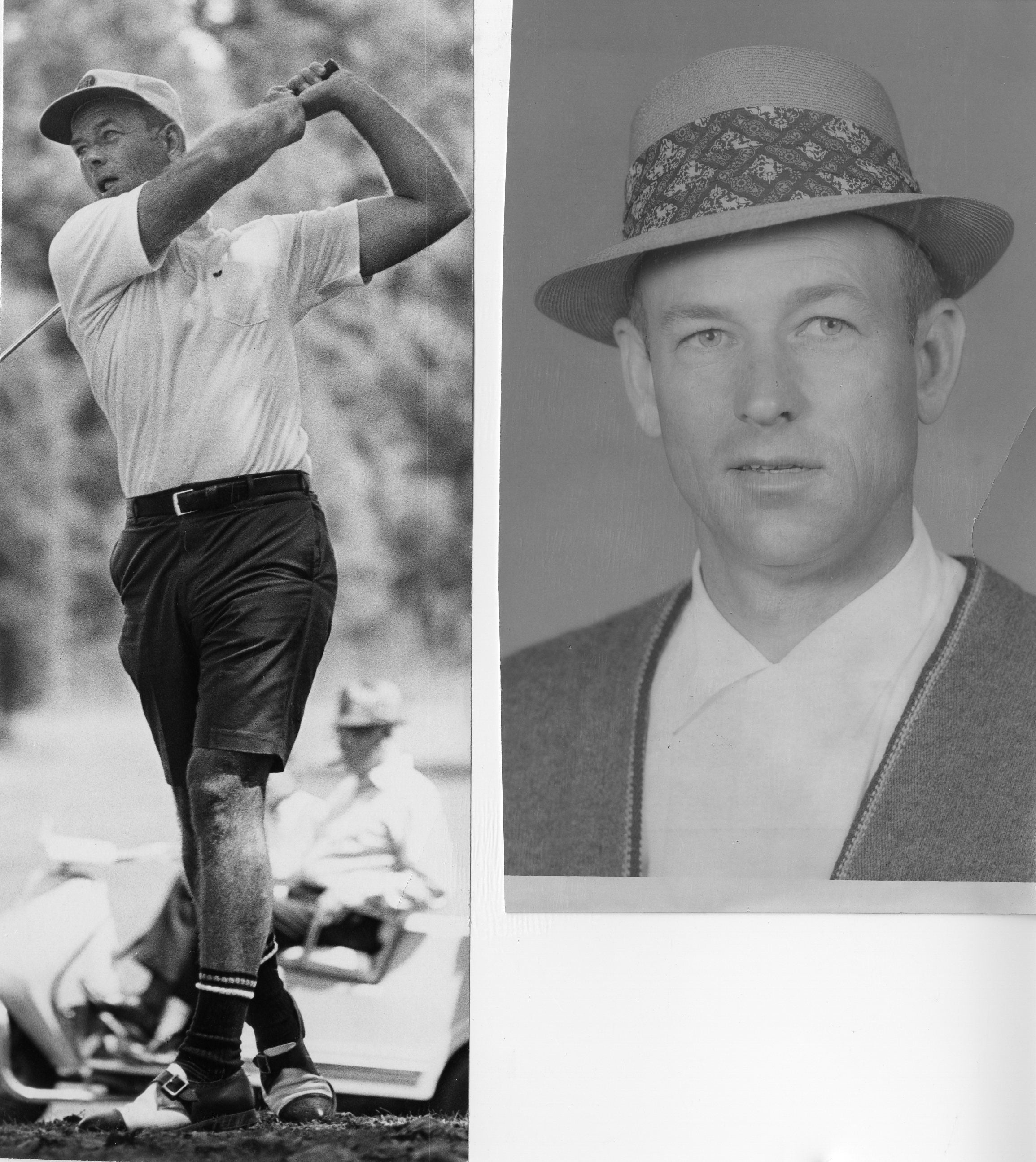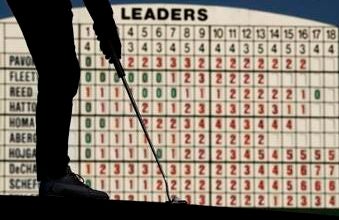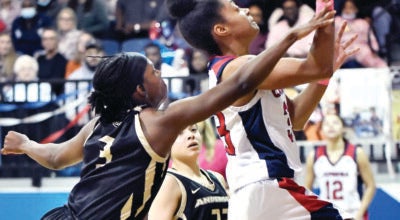Golfing greats: Welch, Dorsett came together 50 summers ago
Published 12:00 am Thursday, July 24, 2014
It probably was the only time in their sensational careers that Harry Welch and A.D. Dorsett both missed 5-foot putts on the same hole, but that’s what happened on No. 18 in their exhausting Country Club of Salisbury’s club championship match 50 summers ago.
Welch, who died at 88 in 2006, is acknowledged as the greatest golfer in Rowan County history.
No one argues that. He’s Rowan’s “Mr. Golf.” His record is unbelievable, and the deeper you dig, the more unbelievable his legacy becomes. He stayed near the top of North Carolina amateur golf 35 years and he was once ranked as the sixth-best senior amateur in the world. Yes, the world.
The Salisbury-Rowan Hall of Fame will swell to 87 members in a few weeks. Welch, enshrined in 2004, is the only one of those 87 who’s been elected for what he did on golf courses.
Dorsett, who died at 73 in 1995, is a candidate for future induction. There’s no clear-cut, second-greatest golfer in county history, but Dorsett, who qualified for the U.S. Amateur three times and for the U.S. Senior Amateur twice, probably would be in that conversation.
Welch was born in 1917. When he was 16, growing up in High Point, he weighed 95 pounds and was too small for contact sports. But he was seriously muscling up by the time he got out of high school, and he was husky enough at 175 or so pounds to make the football team at Duke. He wasn’t a star, and there’s no evidence he even lettered, but we do know he was a Blue Devil in 1938, the year of the “Iron Dukes,” That team enjoyed a perfect regular season and never allowed a point until the last minute of the Rose Bowl.
Welch played pro football in the Dixie League. That’s a fact. It was minor league, but it was pro nonetheless. He was a 185-pound back for the Charlotte Clippers. He played the 1941 season for the Clippers, and that’s the same year he moved to Salisbury to work with his brother Edgar Jr.
Welch probably would’ve played football for the Clippers again in 1942, but Pearl Harbor changed things for many people.
Welch served in the Navy nearly four years during World War II. Known for his fitness, he was mostly an athletic instructor. He served in North Africa where he built a golf course for servicemen.
The stories about Welch volunteering to climb in a ring to box heavyweight champ Joe Louis in an exhibition aren’t just stories. That actually happened in 1944 in Morocco. It’s hard to say how serious Louis was, but we do know that Welch, whose only boxing training was in his Duke P.E. class, went “the distance,” and walked away from the ring under his own power. Welch told reporters he got tagged by some lefts but never by Louis’ right hand. That probably explains how Welch survived with just bruises.
Maybe Welch would’ve become a pro golfer if World War II hadn’t come along, but he’d lost some years.
His impact on local golf started in 1947. He was 29 when he won his first club championship at the Country Club of Salisbury. He would take 10 of those club championships in all. He didn’t enter every year. If he had, he would’ve won more than 10.
In 1948, Welch qualified for the U.S. Amateur. He also qualified for the U.S. Open at Riviera in Los Angeles. Ben Hogan won that tournament and took home the princely sum of $2000. Welch shot 82-78 — 160 and missed the cut, but he wouldn’t miss many more.
From 1950-53, Welch won the Country Club championship every year, claiming his second, third, fourth and fifth club championships.
The 1950 Club championship became famous because Welch made an eagle and shot a course-record 64 to hold off Goode Crowder in a sizzling semifinal.
Who had held the previous record at the Country Club? Well, that was Welch’s 65.
In the 1952 club final, Welch beat Richard Rendleman, one of Rowan’s greats. In the 1953 final, Welch steamrolled Palmer Laughridge 7&6. Laughridge was a legend who had frequently won the event.
Welch was at his height in the early 1950s. He was the qualifying medalist for the Carolinas Amateur in 1951 and 1952 and placed second in the tournament in 1951.
At the 1951 Carolinas Amateur, Welch, Dorsett, Rendleman and Clarence Kluttz brought the Frank Capers Cup back to the Country Club of Salisbury. Together, they had the lowest qualifying scores of any club. The Frank Capers Cup had been around since 1913 and usually went to a club in Charlotte, Greensboro or Columbia. S.C. But for that year, Salisbury golfers were as good as any in the Carolinas.
Dorsett also did his part in World War II, although Pearl Harbor interrupted his promising athletic career at Georgia Tech, where he was on the freshman football team. Dorsett, born in Siler City in 1922, became a force in local golf shortly after that 1951 Carolinas Amateur.
The Country Club’s Labor Day Four-Ball golf tournament was begun in 1952 in memory of Crowder. Welch and Dorsett were among those instrumental in getting it started.
Dorsett was on the victorious Labor Day pairing in 1952 — his team beat Welch’s team — as well as 1953 and 1958. Welch was on winning teams in 1956, 1957, 1960 and 1961, so either Welch or Dorsett was a winner in seven of those first 10 Labor Day tournaments.
Welch would team with his brother Edgar to win the first McCanless 4-Ball in 1954.
Dorsett also made noise. His 64 at the Country Club in 1955 matched Welch’s course record. Dorsett birdied 16 and 17 in a furious finish. The only bad shot of his round came off the tee on 18. His drive struck a tree but caromed into the fairway. He scrambled for the par and the 64.
In 1957, Welch and Dorsett were on the same team as the top amateurs in the Carolinas took on the top amateurs in Virginia at Pinehurst.
In 1957 and 1958, Welch won back-to-back Country Club championships, his sixth and seventh. For all his Labor Day Four-Ball success, Dorsett had yet to win one of those.
Welch’s eighth Country Club title came in 1963 — his biggest romp ever in a final — 8&6.
But then came the 1964 Championship at the Country Club of Salisbury.
It already had been a dramatic summer with Fireball Roberts’ flaming crash in the World 600 at Charlotte and Tony Lema’s amazing PGA run. “Champagne Tony” won a series of tournaments after borrowing Arnold Palmer’s putter — and caddie.
When they squared off in the 36-hole Country Club final in 1964, Dorsett was 41 while Welch was 46.
Welch had routed many championship-day opponents under the pressure of match play, but this one stayed tight for 25 holes. On the 25th, Dorsett took command, and after 30 holes, he was 3-up and a scrambling Welch was in trouble.
But Welch won the 31st hole and was down two.
The turning point was the par-3 14th, the 32nd hole of the day. Dorsett struck a nearly perfect tee shot that barely missed being a hole-in-one. He still would’ve taken the hole with a birdie, but he missed his 2-foot putt. Welch, having dodged a couple of bullets, was still only down two.
Welch got his second wind. Dorsett birdied the next hole — but he still lost it when Welch rolled in a 40-foot eagle putt.
On the 17th, Welch, his forearms bulging like a blacksmith’s, mashed his approach shot within 3 feet of the cup. Then he calmly knocked in the birdie that evened the match.
No. 18, the 36th and final hole, wasn’t the finest hour for either great. Welch missed his 5-foot putt for birdie, and then watched Dorsett miss from 5 feet for par. That miss gave Welch his ninth club championship. Both men uncharacteristically shot in the upper 70s on that last 18. Welch, the radio executive, was one hole better than Dorsett, the automobile executive.
“We didn’t play well — I was just lucky,” Welch told the Post.
Two years later, Welch experienced his greatest thrill in golf. He finally won the Carolinas Amateur in 1966, on his 19th try. He beat two well-known amateurs — Billy Joe Patton and Dillard Traynham — in marathon matches before rolling in the final against Joe Inman, who was headed to the pro tour. That same year, Welch won his 10th — and last — Country Club championship.
Dorsett’s day would come. He broke through for his first Country Club championship in 1968 and added a second in 1970. He would also add three more Labor Day 4-Ball titles. He was on the winning team in 1966, 1967 and 1968, bringing his total to six.
Welch teamed with Jack Crist to triumph in the 1963 and 1965 Carolinas 4-Ball championships.
Welch was even more successful when he became a senior. He and Dale Morey won eight Carolinas Golf Association Senior 4-Balls, taking titles in 1969, 1970, 1971, 1972, 1975, 1980, 1981 and 1982.
Welch’s final Labor Day 4-Ball championship, his fifth, came in 1970. He won that one with his son, Charles. He came close to a sixth. Harry was 64 and Charles was 32 when they finished second in 1982.
In 1973, Welch placed second in the U.S. Senior Amateur Championship in Illinois, and then raced off to a 35th anniversary banquet honoring the Iron Dukes.
Welch had a heart operation in 1978, but he came back to win the Southern Seniors championship.
When the National Senior Amateur Golf Hall of fame was started in High Point in 1984, Welch and Morey, High Point natives, were the first inductees.
The National Senior Hall of Fame holds one of the nation’s top senior amateur tournaments annually at High Point’s Willow Creek Club. That’s a place where Welch won three club championships.
Welch almost always was good, and even when he wasn’t, he found a way to win.
He’s one of the best to call Rowan home — in any sport. He was inducted into the Carolinas Golf Hall of Fame in Pinehurst in 1993.
More Sports






